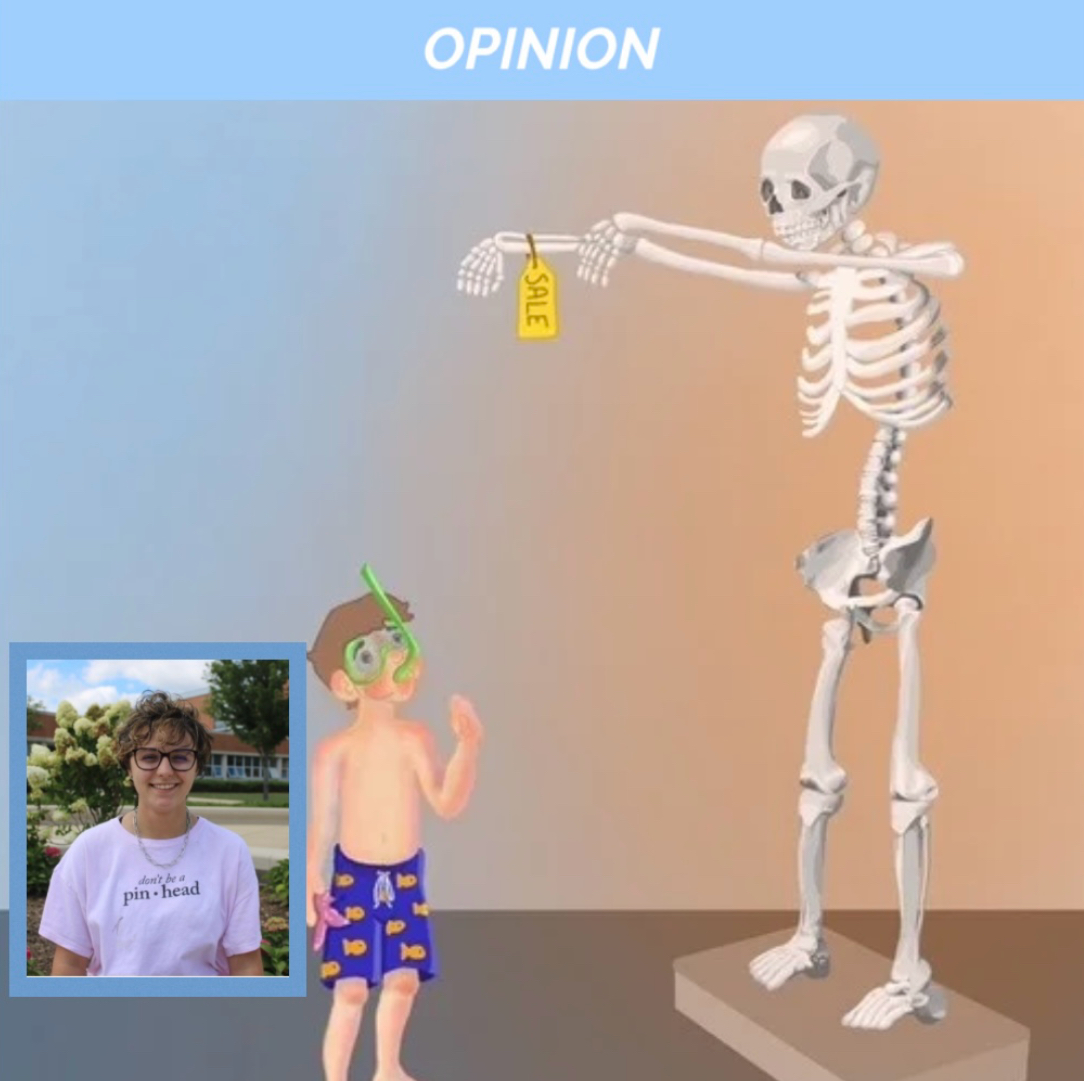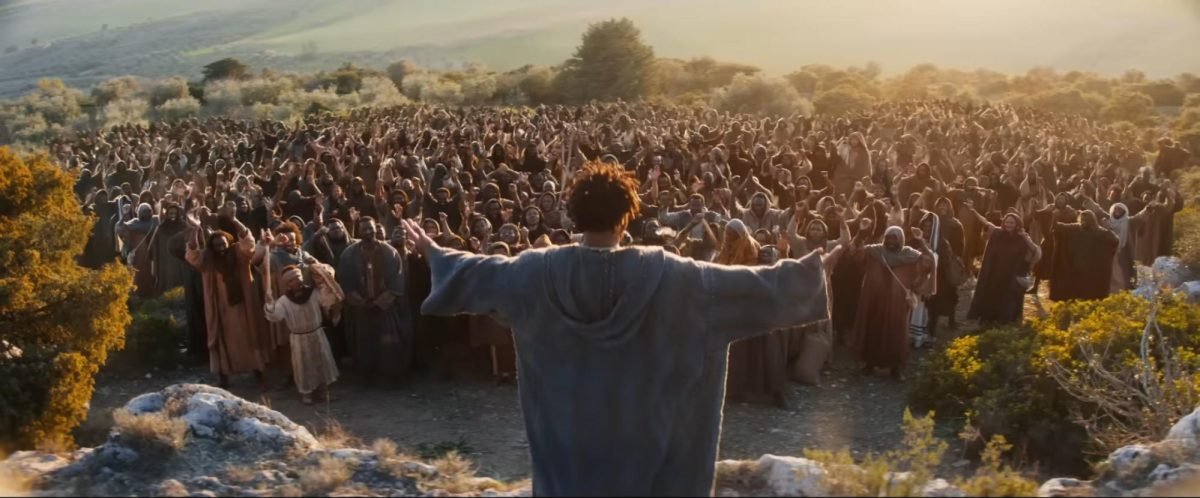“Gladiator II” is a very American movie. Although director Ridley Scott is English and the movie was primarily filmed in Malta and Morocco, I maintain that “Gladiator II” is American; it’s American in its message, visuals and love for killing people on screen every four seconds.
On that note, “Gladiator II” isn’t for the fainthearted. It’s a fast-paced, action-packed, violent movie. Seriously — Scott found a way to kill off anyone in any possible way, from regular arrows to killer wolf-baboons.
It’s also not a story for those looking for an accurate historical piece that perfectly captures the spirit of the Roman times. History buffs, this isn’t the second iteration of “The Duellists” you’ve been waiting 47 years for. That movie beautifully captured early 1800s Europe with correct fencing technique and period-accurate clothing — Scott doesn’t do that anymore. The original “Gladiator” should’ve been a clue, and no — “Napoleon” wasn’t going to be amazingly accurate just because it’s also about a French guy.
I’ll admit, the film has some major historical inaccuracies. One instance of this is the first battle, where the Roman army attacks and conquers Numidia in 208 A.D., a territory actually annexed by Rome in 46 B.C. So if Romans attacking what should be Rome tickles your temper, try to look past anything that might not be correct and keep in mind that it’s just a movie — a movie that takes action/adventure to new heights.
“Gladiator II” takes place in Rome 16 years after the events of “Gladiator,” in a world where Marcus Aurelius’s dream of returning Rome to the senate is dead. Now Rome is governed by two tyrannical, corrupt, unstable and punchable brothers, Geta and Caracalla.
Under their orders, General Acacius attacks and conquers Numidia. In the heat of battle, he orders the death of an archer. This archer, Arishat, is Hanno’s wife, whom the film follows. As Hanno is taken hostage and becomes a gladiator, he enters Rome and, subsequently, the Colosseum, wanting only one thing: the head of the general who killed his wife.
The film beautifully illustrates Hanno’s character arc, from someone in hiding to a leader facing the whole of Rome, through its expert use of visuals, which are almost … overwhelming. From the screen’s dim nature during Hanno’s recurring vision of the river to the Underworld, to the bright, flashy, parties of the emperors, or the epic, almost “Mad Max”-esque vision of Rome, Scott and his team nailed the cinematography of “Gladiator II.”
While “Gladiator” mainly focuses on the journey of two opposing men, Maximus and Commodus, both firmly set in their ways, “Gladiator II” explores the concept of hiding oneself from the public. And the scriptwriting encapsulates said idea. Throughout the movie, the viewer doesn’t know the real villain. In a dark similarity to real life, Hanno can only trust himself. Anybody he meets along his journey can become an enemy as quickly as they can become a friend.
Overall, “Gladiator II” is what I would expect from a sequel to “Gladiator.” It’s not the masterpiece that was “Gladiator.” Are the storylines as emotional as the original? No. Is it a totally realistic movie? Definitely not.
But, for those who loved the first movie or those who enjoy fast-paced, visual, action movies, it’s worth seeing. You will be entertained.
Now, if you don’t want any spoilers, stop reading here. However, if you’ve seen the movie, we shall continue.
Remember how I said 575 words ago that “Gladiator II” was a “very American movie”? I wasn’t joking … it is. Yes, the main theme of the story is hiding oneself from the others: Lucius hides behind the name Hanno, Macrinus hides his intention of taking over Rome, and Acacius and Lucilla hide their plot to overthrow Geta and Caracalla — but there’s a sub-theme.
With “Gladiator II” being a blockbuster movie released as the holiday season begins, it brings to light a lesson about values that we, as Americans, should keep in mind this year in particular.
Behind the crazy CGI and the unrealistic duels in front of opposing armies as they watch, “Gladiator II” is a story about compassion. Compassion is the value that makes this movie American … to us Americans. If you’re from another country, I’m sure you can take away the same lesson.
In the past few years, politics has rendered America divided (yes, a 17-year-old is connecting “Gladiator II” to politics; you can leave if you want). We are so polarized that both sides have normalized insults in politics.
To be compassionate and to care about others is now considered to be weak and not masculine. It’s this idea of compassion being a weak trait that drives much of what is dubbed “toxic masculinity.” The countless videos I’ve seen of people promoting that men only care about their own success are disheartening. They applaud the idea of using others to their advantage. They scoff at the idea of accepting and caring about others.
Yet, what is more brave, more masculine even, than those who volunteer to serve in our military? Veterans who fight in foreign wars by their own decision: a decision based on compassion, love for others and belief in their country.
The plot of “Gladiator II” circles around Marcus Aurielius’s dream of a free and fair Rome. A dream Lucius, Acacius and Lucilla risk their lives to help bring about. Yet, Macrinus describes Marcus Aurelius’s vision as fiction, a story. He scoffs at it. But a story is all we need.
It’s hard to forget the scene in the Colosseum between Acacius and Lucius when Lucius forgives and spares Acacius due to his loyalty to Aurelius’s vision of a free and fair Rome. In the same light, we as Americans undeniably gather around “the American Dream,” whether you think it to be fiction or not.
In the film, selfishness only leads to death; Geta, Caracalla and Macrinus fall to this fate. However, compassion … compassion triumphs. As “Gladiator II” was released during a holiday season that follows a divisive political campaign and precedes what many fear will be a trying time, both sides of the aisle should keep compassion in mind, both in policy and in daily interactions. If Lucius can see past Acacius ordering the death of his wife, you can see past someone else’s political views and see them as a person.
So, talk to that uncle or aunt of yours for the first time in four years. Hey, “Gladiator II” could be an icebreaker.
















































































